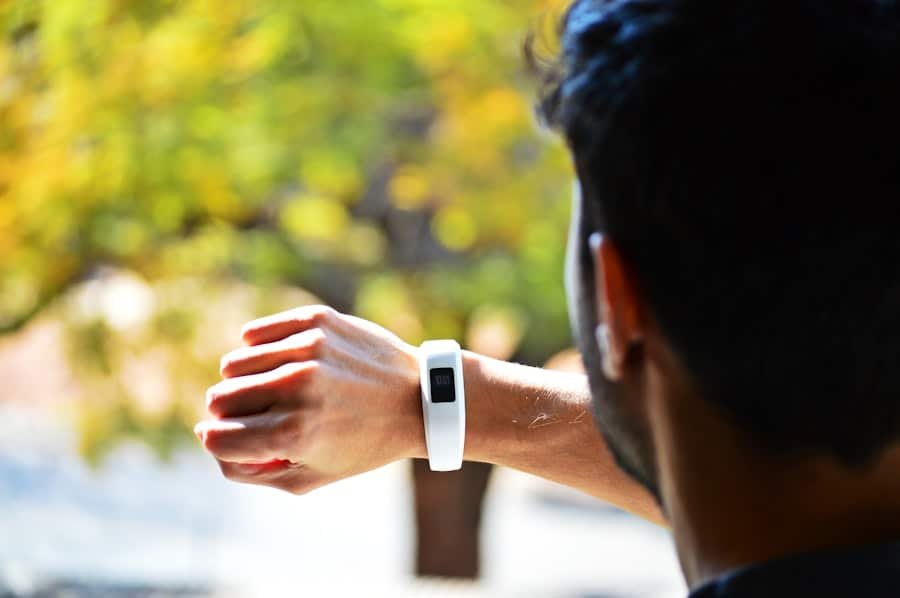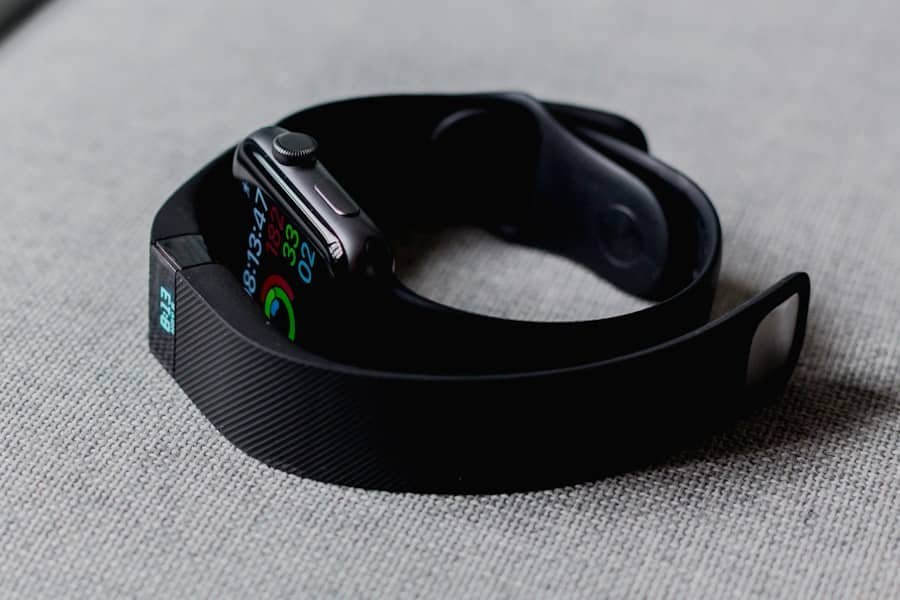Health tech innovation represents a transformative force within the healthcare landscape, characterised by the integration of technology into medical practices, patient care, and health management. This evolution is not merely a trend; it signifies a fundamental shift in how healthcare is delivered, accessed, and experienced. The advent of digital health solutions, telemedicine, wearable devices, and mobile health applications has revolutionised the way patients interact with healthcare providers and manage their health.
As the global population continues to grow and age, the demand for efficient, accessible, and effective healthcare solutions has never been more pressing. The impetus for health tech innovation stems from various factors, including the need for improved patient outcomes, cost reduction, and enhanced operational efficiency within healthcare systems. The COVID-19 pandemic further accelerated this trend, highlighting the necessity for remote care solutions and digital health tools.
As a result, healthcare organisations are increasingly investing in technology to streamline processes, enhance patient engagement, and facilitate data-driven decision-making. This article delves into the multifaceted impact of health tech innovation on healthcare delivery, exploring its benefits, challenges, and future potential.
Summary
- Health tech innovation has revolutionised the healthcare industry, leading to improved patient care and outcomes.
- The impact of health tech innovation on healthcare includes increased efficiency, better diagnosis and treatment, and improved patient engagement.
- Examples of health tech innovation include wearable devices, telemedicine, electronic health records, and personalised medicine.
- Challenges in health tech innovation include data privacy and security, regulatory hurdles, and the need for interoperability among different systems.
- Artificial intelligence plays a crucial role in health tech innovation, from predictive analytics to robotic surgery, and is set to shape the future of healthcare.
The Impact of Health Tech Innovation on Healthcare
The impact of health tech innovation on healthcare is profound and multifaceted. One of the most significant changes has been the enhancement of patient engagement and empowerment. With the proliferation of mobile health applications and wearable devices, patients now have unprecedented access to their health data.
This accessibility allows individuals to monitor their vital signs, track medication adherence, and manage chronic conditions more effectively. For instance, diabetes management apps enable users to log their blood sugar levels and receive real-time feedback on their dietary choices, fostering a proactive approach to health management. Moreover, health tech innovation has facilitated improved communication between patients and healthcare providers.
Telemedicine platforms have emerged as a vital tool for delivering care remotely, particularly in rural or underserved areas where access to specialists may be limited. Patients can consult with healthcare professionals via video calls or messaging services, reducing travel time and associated costs. This shift not only enhances convenience but also ensures that patients receive timely medical advice and interventions.
The integration of electronic health records (EHRs) further streamlines communication by providing healthcare providers with comprehensive patient histories at their fingertips, enabling more informed decision-making.
Examples of Health Tech Innovation

Numerous examples illustrate the breadth of health tech innovation currently reshaping the healthcare landscape. One prominent instance is the rise of telehealth services, which gained significant traction during the COVID-19 pandemic. Platforms such as Doctor on Demand and Amwell allow patients to connect with licensed healthcare professionals from the comfort of their homes.
These services have proven particularly beneficial for mental health care, where barriers to access can be significant. Patients can engage in therapy sessions or psychiatric consultations without the stigma or logistical challenges often associated with in-person visits. Another noteworthy example is the development of wearable technology designed to monitor health metrics continuously.
Devices like the Apple Watch and Fitbit have evolved beyond simple fitness trackers to include advanced health monitoring features such as heart rate variability analysis, ECG readings, and even blood oxygen level tracking. These innovations empower users to take charge of their health by providing insights that can lead to early detection of potential health issues. For instance, studies have shown that wearable devices can help identify irregular heart rhythms, prompting users to seek medical attention before more serious complications arise.
Challenges and Opportunities in Health Tech Innovation
Despite the promising advancements in health tech innovation, several challenges persist that must be addressed to fully realise its potential. One significant hurdle is the issue of data privacy and security. As healthcare becomes increasingly digitised, the risk of data breaches and cyberattacks grows correspondingly.
Patients’ sensitive health information must be protected to maintain trust in digital health solutions. Regulatory frameworks such as the General Data Protection Regulation (GDPR) in Europe aim to safeguard personal data; however, compliance can be complex for healthcare organisations navigating the intricacies of technology adoption. Additionally, there exists a digital divide that can exacerbate health disparities among different populations.
While urban areas may benefit from advanced telehealth services and digital tools, rural communities or low-income individuals may lack access to reliable internet connections or smartphones. This inequity can hinder the widespread adoption of health tech innovations and limit their effectiveness in improving overall public health outcomes. Addressing these disparities presents an opportunity for stakeholders to develop inclusive strategies that ensure equitable access to technology-driven healthcare solutions.
The Role of Artificial Intelligence in Health Tech Innovation
Artificial intelligence (AI) plays a pivotal role in advancing health tech innovation by enhancing diagnostic accuracy, personalising treatment plans, and streamlining administrative processes. Machine learning algorithms can analyse vast datasets to identify patterns that may elude human clinicians. For example, AI-driven diagnostic tools have demonstrated remarkable accuracy in detecting conditions such as skin cancer through image analysis.
By training algorithms on thousands of images, these systems can assist dermatologists in making more informed decisions about patient care. Furthermore, AI can facilitate personalised medicine by analysing genetic information alongside clinical data to tailor treatment plans for individual patients. This approach is particularly relevant in oncology, where understanding a patient’s unique genetic makeup can inform targeted therapies that are more likely to be effective while minimising adverse effects.
Additionally, AI-powered chatbots are increasingly being employed in patient engagement strategies, providing instant responses to common queries and guiding users through symptom assessments before they consult a healthcare professional.
The Future of Health Tech Innovation

Looking ahead, the future of health tech innovation appears promising yet complex. As technology continues to evolve at an unprecedented pace, we can expect further integration of advanced technologies such as virtual reality (VR) and augmented reality (AR) into healthcare practices. These immersive technologies hold potential for medical training and patient education by simulating real-life scenarios that enhance learning experiences for both healthcare professionals and patients alike.
Moreover, the ongoing development of blockchain technology could revolutionise how patient data is stored and shared across healthcare systems. By providing a secure and decentralised method for managing electronic health records, blockchain could enhance data interoperability while ensuring patient privacy. This innovation could facilitate seamless information exchange among providers while empowering patients with greater control over their own health data.
Ethical Considerations in Health Tech Innovation
As with any technological advancement, ethical considerations surrounding health tech innovation are paramount. One pressing concern is the potential for bias in AI algorithms that could lead to disparities in care delivery. If training datasets are not representative of diverse populations, AI systems may inadvertently perpetuate existing inequalities in healthcare outcomes.
It is crucial for developers to ensure that algorithms are trained on inclusive datasets that reflect the demographics of the populations they serve. Additionally, informed consent becomes increasingly complex in a digital landscape where patients may not fully understand how their data will be used or shared. Transparency regarding data usage policies is essential to maintain trust between patients and healthcare providers.
Furthermore, as technology continues to advance rapidly, regulatory bodies must adapt their frameworks to address emerging ethical dilemmas while fostering innovation.
The Importance of Health Tech Innovation in Improving Healthcare
Health tech innovation stands at the forefront of a new era in healthcare delivery, offering unprecedented opportunities to enhance patient care and streamline operations within healthcare systems. As we navigate the complexities of this evolving landscape, it is essential to recognise both the challenges and opportunities that accompany these advancements. By prioritising ethical considerations and ensuring equitable access to technology-driven solutions, stakeholders can work collaboratively towards a future where health tech innovation significantly improves healthcare outcomes for all individuals.
The importance of health tech innovation cannot be overstated; it has the potential to reshape how we approach health management and disease prevention on a global scale. As we continue to explore new frontiers in technology and medicine, it is imperative that we remain vigilant in addressing ethical concerns while harnessing the power of innovation to create a healthier future for everyone.
Health Tech Innovation is a crucial aspect of modern healthcare, with companies like Unison leading the way in providing innovative solutions. In a related article, Duncan Bannatyne’s journey from an ice cream van to Dragons’ Den showcases the importance of entrepreneurial spirit in driving business success. This article highlights the significance of individuals like Bannatyne who have made a significant impact on the business world through their innovative ideas and determination. To read more about this inspiring story, visit here.
